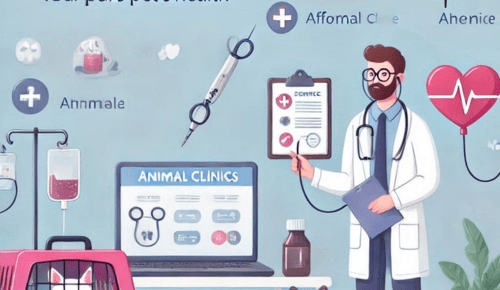
Caring for a pet’s health is a priority. But sometimes, the cost can feel overwhelming. Animal clinics offer a solution by providing affordable care without compromising on quality. These clinics focus on essential services that keep pets healthy. They often provide vaccines, health check-ups, and treatments for common ailments. The goal is to make sure every pet receives the care they need, regardless of financial constraints. A veterinarian in Clearwater, for example, may work closely with local clinics to bring these services to the community. Animal clinics also often have payment plans or reduced-cost programs. This ensures that pets continue to receive routine care, which is vital to their overall well-being. By focusing on preventive measures, animal clinics help pet owners avoid costly emergencies. The dedication to affordable care reflects a commitment to both pets and their owners, creating a healthier community for everyone involved.
Understanding the Services Offered
Animal clinics often provide a range of services that address the basic health needs of pets. These services typically include vaccinations, wellness exams, and dental care. Clinics also handle minor surgeries and offer parasite prevention. Each service plays a crucial role in maintaining your pet’s health and preventing future health issues. Vaccinations, for instance, protect pets from contagious diseases, while wellness exams help catch potential issues early. Dental care is vital to prevent oral health problems that can affect overall well-being. These comprehensive services ensure pets get the attention they need, fostering a healthier life.
Cost Comparison: Clinics vs. Traditional Veterinary Services
When considering pet care options, cost is a significant factor. Here’s a simple comparison of typical costs associated with animal clinics versus traditional veterinary services:
| Service | Animal Clinic Cost | Traditional Veterinary Cost |
| Vaccinations | $20 – $40 | $50 – $70 |
| Wellness Exam | $30 – $50 | $60 – $100 |
| Dental Cleaning | $75 – $150 | $200 – $500 |
Animal clinics often provide these essential services at a fraction of the cost. This affordability ensures that more pets can receive routine care without financial strain on their owners.
How Clinics Maintain Quality
Despite the lower costs, animal clinics maintain high-quality care. Experienced veterinarians and skilled staff form the backbone of these clinics. Clinics often utilize efficient practices and focus on preventive care to drive down costs. By streamlining operations, they can offer pocket-friendly prices without sacrificing service quality. The use of standardized protocols and bulk purchasing of supplies also help to keep prices accessible. Clinics remain committed to using up-to-date technology and methods, ensuring pets receive the best possible care.
Payment Plans and Financial Assistance
Many animal clinics understand the financial challenges pet owners face. As a result, they offer flexible payment plans and financial assistance programs. Clinics may work with non-profit organizations to provide subsidized care for low-income families. This collaboration ensures that no pet goes without necessary treatment. For example, some clinics partner with organizations like the American Veterinary Medical Association to offer financial aid. These programs make it possible for pets to receive ongoing care while easing the financial burden on owners.
The Role of Preventive Care
Preventive care is a cornerstone of affordable pet health. Regular check-ups and vaccinations prevent diseases that could lead to costly treatments. By catching health issues early, clinics help avoid emergency visits, which are often more expensive. Parasite prevention, for example, can save pets from severe illnesses and pet owners from high medical bills. Emphasizing preventive measures ensures long-term savings and healthier pets. This approach benefits everyone involved, highlighting the value of routine care.
Community Impact and Benefits
Animal clinics play a vital role in enhancing community health. By providing affordable services, they ensure that more pets are vaccinated and checked regularly. This widespread care reduces the risk of disease outbreaks and enhances public health. Clinics often engage in community outreach, offering educational programs about pet care. These initiatives empower pet owners with knowledge and resources to maintain their pets’ health. The collaboration between clinics and communities fosters a supportive environment for all pets.
Conclusion
Animal clinics are essential in making pet care affordable and accessible. Through comprehensive services, quality care, and financial assistance, they ensure pets lead healthier lives. Emphasizing preventive care and community engagement, these clinics create a positive impact on both pets and their owners. By choosing an animal clinic, pet owners can provide the necessary care for their pets without financial worry, promoting a healthy, happy life for their beloved companions.



